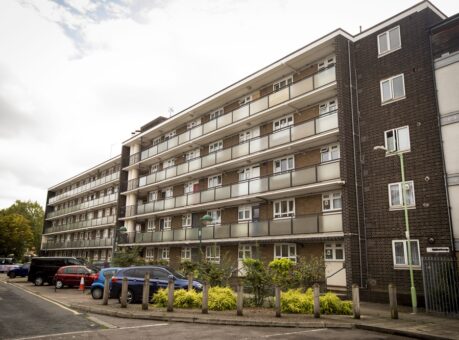
With Labour’s electoral win in 2024 comes a host of plans for a reinvigorated and more socially minded housing market. Led by Deputy Prime Minister and Secretary of State for Housing, Communities and Local Government, Angela Rayner, who herself grew up in council housing, the manifesto sets a target of 370,000 new homes to be created for every year of their leadership – 1.5 million homes in total. This represents the biggest increase in social and affordable house building in a generation.
How Labour plan to achieve their housing goals
Clearly aware of the challenges associated with meeting such ambitious targets, the manifesto encompasses an expansive range of strategies and tactics in the hope of making the unprecedentedly high figure achievable. The most notable for councils and housing associations are:
- Prioritising the building of new social rented homes.
- Prioritising the development of previously used land and fast-tracking approval of urban brownfield sites, release grey belt, whilst continuing to preserve greenbelt.
- Introduction of ‘golden rules’ to ensure development benefits communities and nature.
- Ensuring planning authorities have up-to-date local plans.
- Combined authorities to get new planning powers, freedoms and flexibilities to make better use of grant funding.
- Reviewing the increased right-to-buy discounts introduced in 2012 and increasing protections on newly-built social housing.
- Local authorities to give first-time buyers the first chance to buy homes.
- Reforming and strengthening the presumption in favour of sustainable development.
- Reforming compulsory purchase compensation rules to improve land assembly, speed up site delivery, and deliver housing, infrastructure, amenity, and transport benefits to the public.
Increased financial support needed for councils and housing associations
Whilst many councils and housing associations will welcome the recognition of just how necessary and important their efforts to bolster social housing are, it is clear that increased funding will be needed in order to deliver against Labour’s promises. A letter to Angela Rayner from the National Housing Federation (NHF), which represents 600 housing associations, and the Local Government Association stated, “At the next spending review, we need a long-term plan for new and existing social homes, underpinned by a fair and sustainable financial model developed alongside councils and housing associations.”
And, whilst the manifesto outlines ways in which new build projects can be expedited, many councils are laden with a backlog of existing projects that have been severely delayed or cancelled due to previous years of financial pressures and uncertainty.
Property guardianship can help to relieve financial and logistical pressures for housing providers
Against this backdrop of increased pressure, scant resources and moving goalposts, it is not difficult to see how property guardianship can be deployed as a valuable asset for councils and housing associations.
Whether projects need to be paused in order for plans to be reassessed in accordance with new guidance and regulations, or new projects become urgent priorities as the scale of the need becomes clearer, buildings may find themselves empty for unknown lengths of time, and guardianship can provide councils with breathing room in the interim. It is an inherently flexible approach that not only secures your buildings, but also meets your main objective of creating affordable temporary homes.
Dot Dot Dot have extensive experience of working within complex regeneration contexts
At Dot Dot Dot specifically, we specialise in helping local authorities and housing associations, having partnered with some of the largest in London on the G15 list including A2Dominion Group, Notting Hill Genesis, Peabody Trust and Southern Housing. These collective years of experience mean we are not phased by complex regeneration and redevelopment contexts.
A bespoke management plan, co-created with you, means that we provide fast and agile solutions to your ever changing needs, whilst always maintaining our shared commitment to supporting your communities. Our guardians aren’t just anybody – they bring with them a positive, neighbourly spirit, a care for their environment, not to mention their commitment to volunteering for local causes.
In times of change, even when the end-goal is undeniably positive, the path can be fraught with obstacles and pitfalls. We understand the complexities of the challenges you face, and are here to help in valuable and practical ways.

Meet our clients
We have worked with a diverse client portfolio over the last decade, including local authorities, housing associations, charities and trusts, public bodies and private developers.


